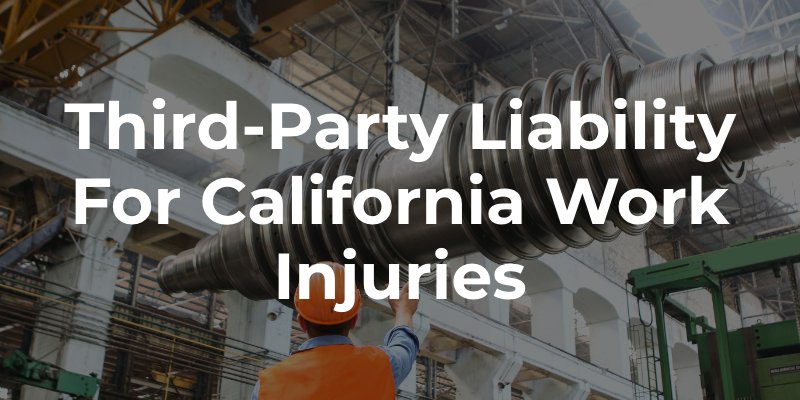Our attorneys have been assisting the Orange County and Southern California communities for over 40 years.
Workplace injuries are not uncommon, and injured employees will typically be able to recover workers’ compensation benefits. However, there are times when a third party causes a workplace injury, and this opens up the claim to further compensation. Third-party liability for a workplace injury often means there will be a personal injury lawsuit filed in civil court against that party.
Individuals can still recover workers’ compensation benefits if they sustained an on-the-job injury, but a third-party claim allows them to pursue additional types of compensation not available through workers’ comp. However, this also means they have to prove the liability of the third party.

Because workers’ compensation benefits are a type of “no-fault” insurance in California, workplace injury victims usually are not able to file a lawsuit against their employer or another party to recover additional compensation. However, third-party injury claims are allowed in certain circumstances.
Some of the most common scenarios where our team has found third-party liability for a workplace accident or injury include the following:
This is not a complete list of the types of third-party injury scenarios that lead to additional lawsuits outside of the workers’ compensation system. We encourage you to speak to your workplace injury lawyer as soon as possible if you have questions about what type of claim to file.
If somebody you care about has sustained a workplace injury but is struggling to recover the compensation you need, get an attorney involved as promptly as possible. These claims can be incredibly challenging, particularly when they involve third-party claims against another party. This means that you and your legal team will have to prove that the other party was negligent in some way, and there are specific elements that must be in place in order for a case to succeed.
Your San Bernardino workplace injury attorney can examine the facts of your case, conduct a complete investigation into the incident, and handle any negotiations involved. If necessary, your lawyer will fully prepare to take your third-party workplace injury claim to trial.